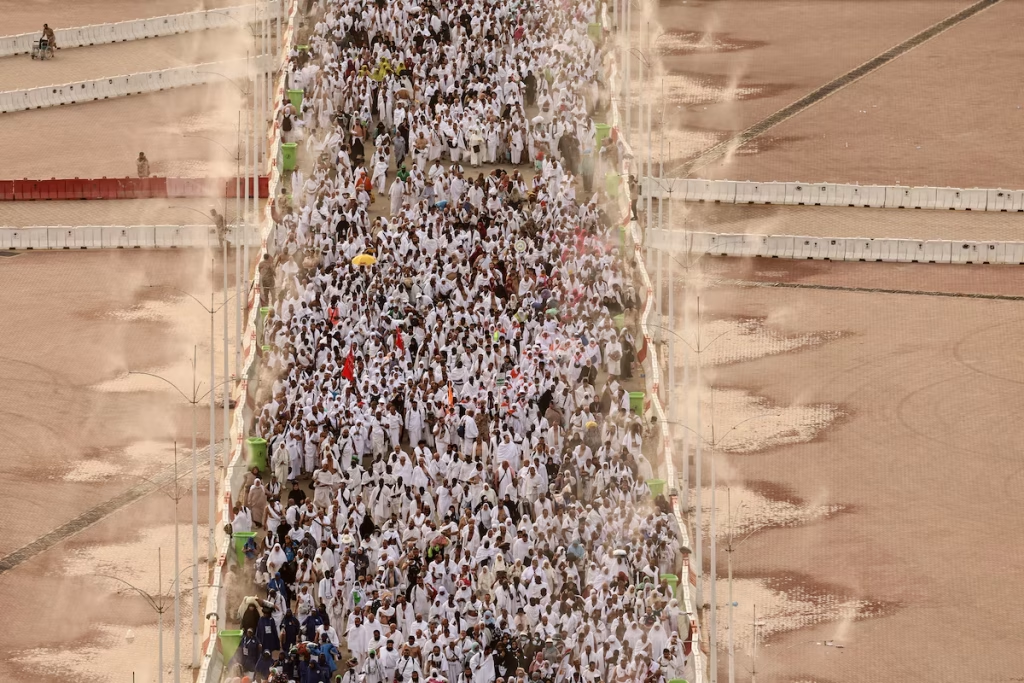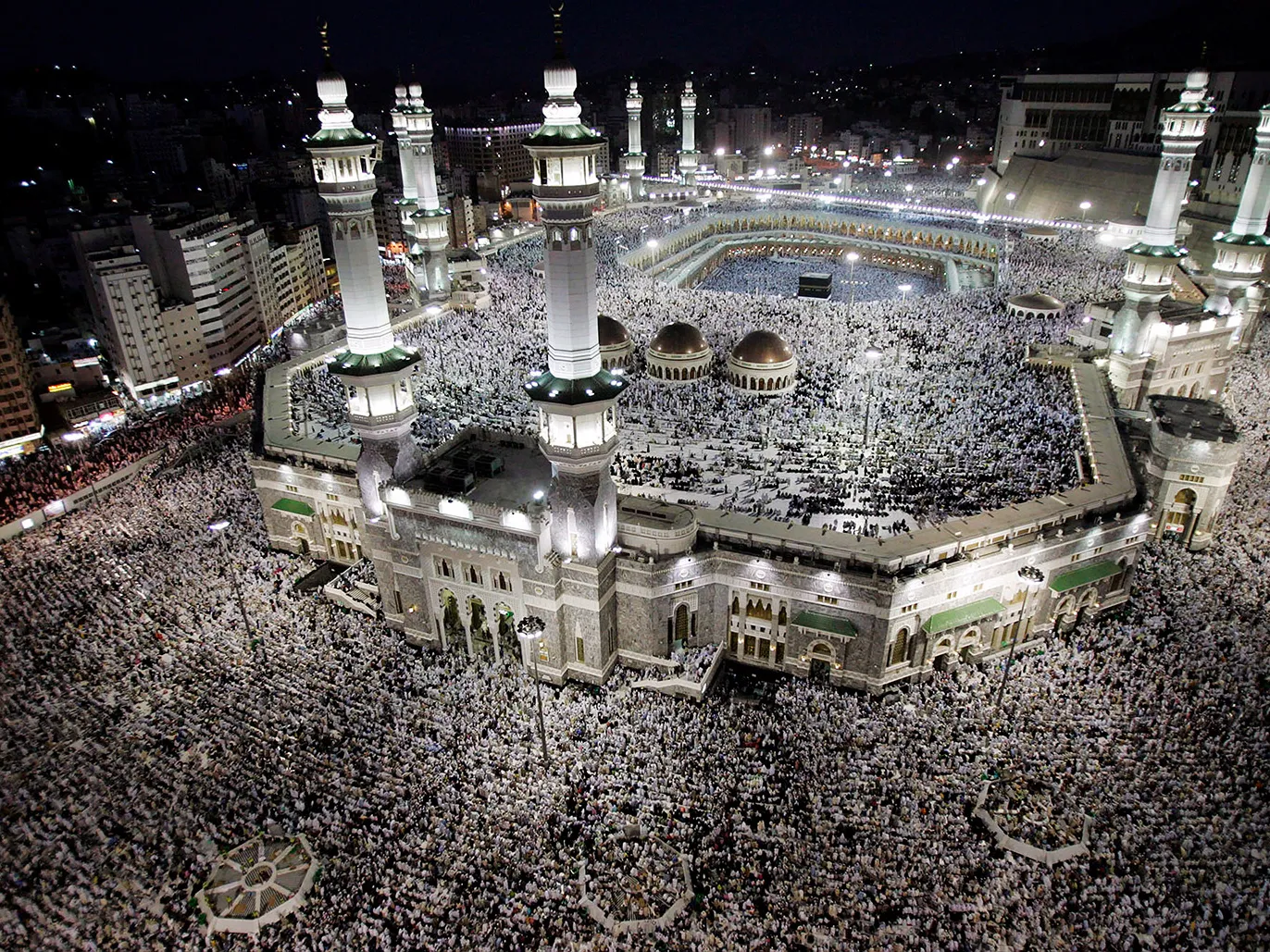Over a million Muslim pilgrims have gathered in the sacred city of Mecca ahead of the official start of the annual hajj pilgrimage, with Saudi authorities pledging enhanced safety measures following soaring temperatures and a rigorous clampdown on unregistered participants.
This year’s hajj, which begins Wednesday, comes as temperatures are expected to exceed 40°C (104°F), raising fresh concerns after last year’s deadly heatwave claimed hundreds of lives.
The pilgrimage is a cornerstone of Islam and a religious obligation that Muslims are expected to undertake at least once in their lifetime, provided they are financially and physically able. By Friday, over 1.3 million pilgrims had arrived in Saudi Arabia, according to official figures.
In response to past tragedies, authorities have doubled their efforts to safeguard attendees. More than 250,000 personnel across 40 agencies have been deployed.
Measures include 50,000 square metres of additional shaded areas, over 400 cooling units, and the availability of thousands of medical workers.
Saudi Hajj Minister Tawfiq al-Rabiah also confirmed the use of AI-powered surveillance and drones to manage the vast crowds better and enhance safety.

Despite the sweltering heat, pilgrims expressed deep joy and spiritual fulfilment upon arrival.
“This is truly a blessing from Allah,” said Abdul Majid Ati, a lawyer from the Philippines. “We feel peaceful and secure here.”
For Abdulhamid, a 27-year-old Nigerian making his second pilgrimage, the experience is meaningful despite the harsh conditions. “It’s very, very, very hot,” he admitted, noting that he never goes out without sunglasses.
The hajj once again falls in the peak heat of June, and memories remain fresh from last year’s crisis, when 1,301 mostly undocumented pilgrims died due to heat exposure, many of whom lacked access to cooling facilities or transportation.
In anticipation of such risks, Saudi officials launched an aggressive campaign to prevent unauthorised entry into Mecca. Raids, drone surveillance, and mass text alerts have been deployed to locate and remove pilgrims without official permits.
Access to the hajj is regulated through a quota and lottery system, but the high costs drive many to attempt the journey illegally. Those caught face arrest, fines, deportation, and up to a 10-year ban from the kingdom.
Large-scale gatherings at the hajj have proved dangerous in the past. The most devastating occurred in 2015, when a stampede in Mina during the “stoning of the devil” ritual resulted in as many as 2,300 deaths.
Beyond the religious significance, the hajj and Umrah pilgrimages provide a major revenue source for Saudi Arabia and bolster the monarchy’s image. The Saudi king bears the prestigious title of Custodian of the Two Holy Mosques in Mecca and Medina.


 Trending
Trending 